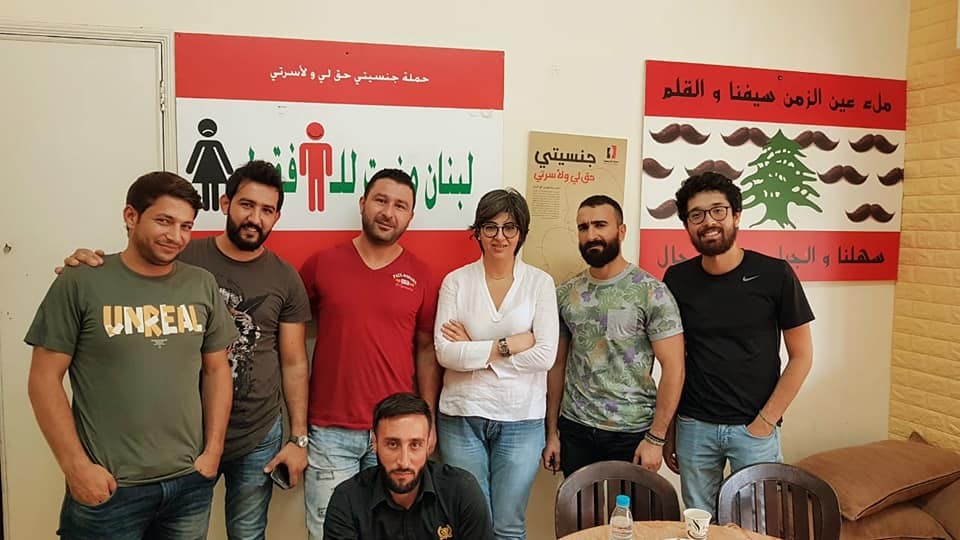Men and women campaign together for nationality rights in Lebanon
Date:

In Lebanon, national laws do not allow Lebanese women to pass their nationality to their husbands and children. As a result, thousands of children are born and raised in the country but have no Lebanese citizenship, and can face multiple challenges, including obstacles to keeping families together.
To address this, the Collective for Research and Training on Development (CRTDA), a Beirut-based organization, launched the campaign My Nationality is A Right for Me and My Family, in partnership with UN Women regional programme Men and Women for Gender Equality programme, funded by the Government of Sweden.
The campaign brings together parents, and in particular mothers, affected by nationality law, with researchers and campaigners to promote legal reform.
Nadira Nahhas, 49, is married to an American. She has a son who was born in the United States and another who was born in Lebanon. She returned from the US to Lebanon in 1995, and each year she must apply for a residency permit for her son, despite the fact that she is a Lebanese national. Nadira said, “I thought I was the only one with this problem. I didn’t know that there were a lot of women like me, married to different nationalities and unable to grant their children the basic right to nationality.”
Nadira joined the CRTDA campaign in 2002. “I connected with CRTDA through a card I found. I called them and joined right away.”
Emad Chaachaa, 33, hails from the southern Chouf region, and has a Syrian father and Lebanese mother. He cannot buy property in Lebanon or take out a bank loan, and cannot apply for a government job.
In March of 2018, Nadira, Emad and thousands of others similarly affected by the current legislation, gathered in front of the parliament on International Women’s Day, chanting slogans, and holding up placards to draw attention to the aims of the My Nationality campaign.
Actions like this, combined with direct advocacy with law-makers, have brought the issue of unequal and discriminatory nationality laws into the popular consciousness.
“At first, most politicians seemed to be unaware of this issue. They saw our actions and said, ‘Where’s the problem in Lebanon? I don’t know anything about it.’ But the studies and conferences we put out spread greater awareness,” said Karima Chebbo, CRTDA’s campaign coordinator.
“At the same time, however,” she added, “there were politicians who opposed making changes [to nationality laws]. But after holding the sit-in at parliament, and after meeting parliamentarians in their offices, their responses are beginning to change. Now there’s open political discussion on this topic. In the last elections the majority of candidates referred in their campaigns to the need to amend the nationality law.”
To date more than 24,000 people have engaged with the My Nationality is A Right for Me and My Family Facebook page, pointing to growing public awareness of the campaign and its objectives. In an important and highly welcome move, Lebanon’s Foreign Minister HE Mr. Gebran Bassil has announced he will present a bill to the cabinet to allow Lebanese women married to non-Lebanese men to grant their nationality to their children.
“Lebanese politicians have started to act on their campaign promises on this issue,” said Nadira optimistically.
When asked about his work with CRTDA, Emad said, “They have given me courage. They have given me information about my rights. And now the government is starting to look at us, and they’re saying, ‘These people out there on the ground—they should be given their rights.”
Karima also recognizes the need to work with both men and women on this important issue. “Any activity we do, we do it with women and men. While the issue of nationality directly affects Lebanese women, men are also affected by this discriminatory law and consequently they also have an important role to play in raising awareness about the need for equitable legal reform.”